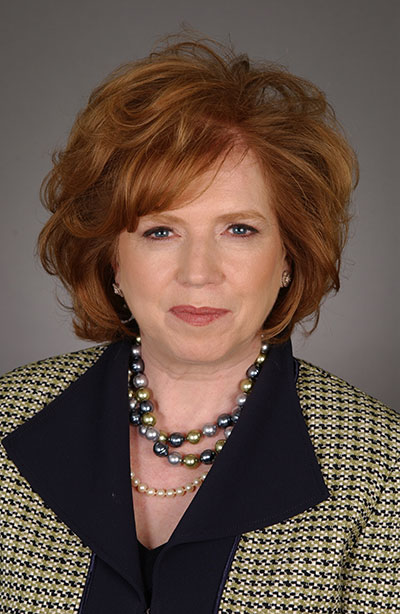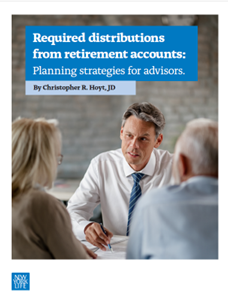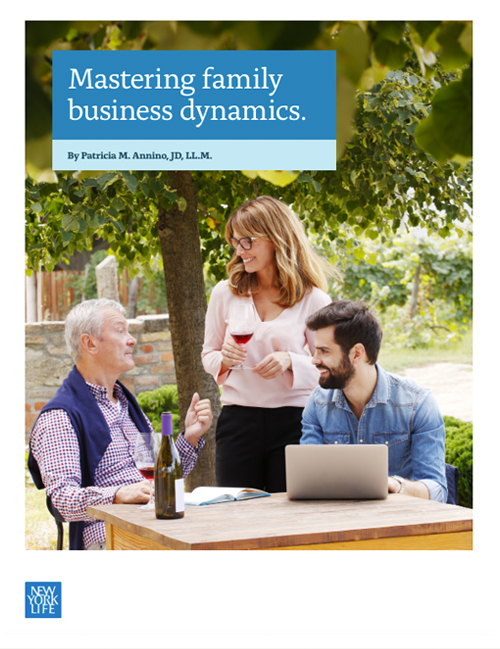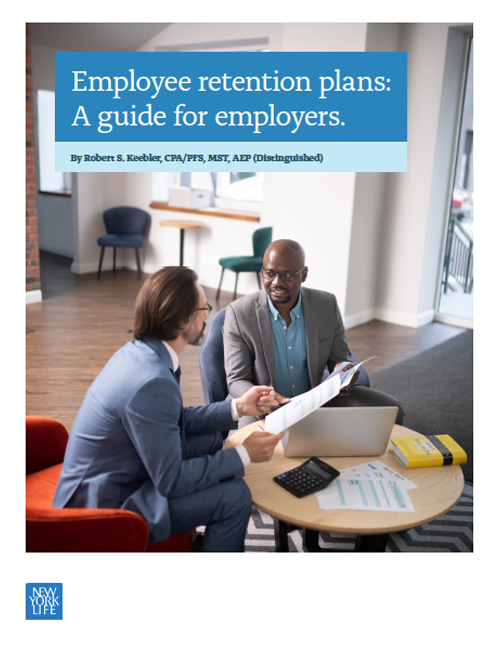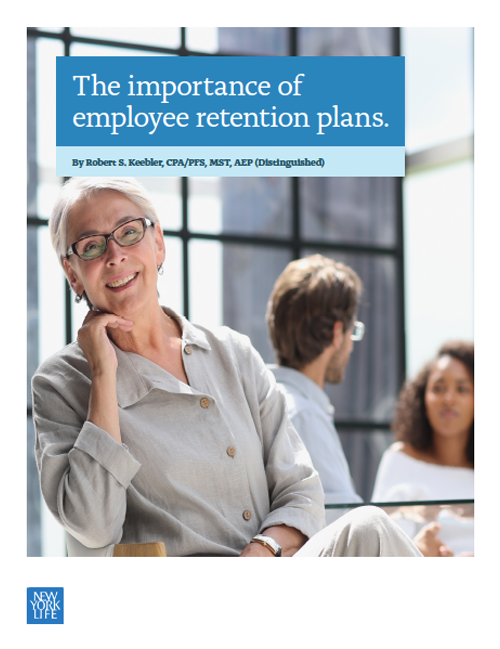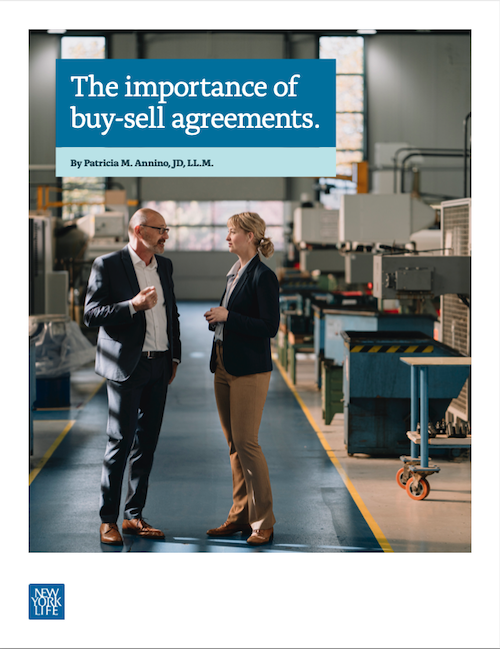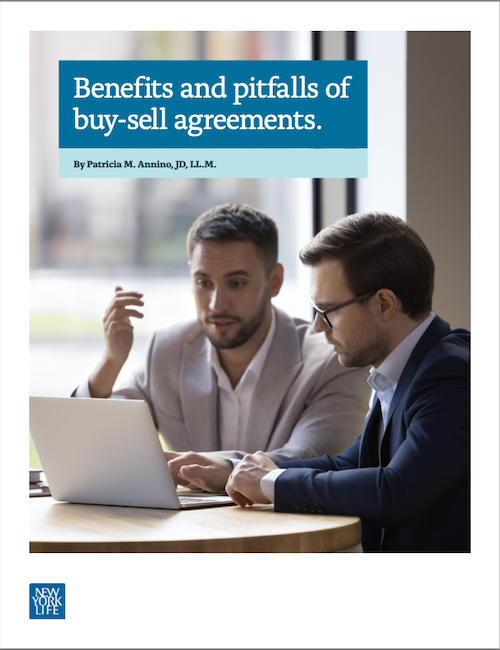Required distributions from retirement accounts: Planning strategies for advisors
By Christopher R. Hoyt, JD
For financial professionals and attorneys advising high-net-worth clients, understanding the rules and strategies from RMDs is crucial for tax-efficient planning and wealth preservation as these distributions impact both account owners during their lifetimes and beneficiaries following the account owner’s passing. This article from law professor Christopher Hoyt presents a clear guide to the key points and strategic opportunities related to RMDs and how leveraging life insurance offers tax-saving solutions.
Managing required distributions from retirement accounts: Rules of the road.
By Christopher R. Hoyt, JD
Managing your retirement accounts effectively is crucial, especially when it comes to understanding required minimum distributions (RMDs). From avoiding penalties to exploring strategies to reducing tax burdens, this guide simplifies the rules of the road to help you navigate your own accounts and any you may inherit.
Best planning practices for family business owners
By Patricia Annino, JD, LL.M.
Running a closely held or family business comes with its own unique challenges. One of the most important — and often overlooked — aspects for owners is how to plan effectively for the future, both short-term and long-term. Think of it like looking through two lenses at the same time: a microscope for the immediate details and a telescope for the bigger picture. Add in open communication and collaboration with your key advisors, and you’ve got a solid foundation for success. If you’ve put off cohesive planning or your current plan is a disconnected pile of documents in a drawer, this guide will walk you through why a collaborative, integrated approach is essential and how to get started creating one to protect your business.
Trust planning for business owners
By Jeff Chadwick, JD
Estate planning attorneys often hear clients say they need to set up a trust, but many clients don’t know why they need one or what type of trust would be best for them. In this article, estate and wealth planning attorney Jeff Chadwick provides a basic overview of common trust structures with a particular focus on trust planning for business owners. Gain a deeper understanding of your clients’ common trust planning goals and learn which types of trusts can be used to address those objectives.
Maximizing wealth transfers for the 99%
By Jeff Chadwick, JD
Since the federal gift and estate tax exemption amount increases have made the estate tax no longer relevant for most taxpayers, the planning focus for clients and their advisors has shifted to reducing income tax rather than reducing transfer tax. In many cases, this requires building flexibility into the client’s gifting strategy in anticipation of potential changes in the tax laws or the client’s family or financial circumstances. This article describes how to tailor a client’s lifetime gifting strategy to their unique financial and family situation and why flexibility – balanced with a heavy dose of practicality – is key.
Mastering Family Business Dynamics
By Patricia M. Annino, JD, LL.M.
It’s not easy to combine family ties with business needs, and while small businesses may be the backbone of the American economy, running a family owned enterprise requires the added responsibility of maneuvering through the complexities of relationships, governance, and fairness. In this article, Boston estate planning attorney Patricia Annino describes how to balance these seemingly disparate elements to bring harmony to the family and longevity to the family business.
Tax-free transfers from IRAs to CRTs and CGAs
By Christopher R. Hoyt, JD
Donors ages 70½ and above have been benefiting from the tax advantages that come with making charitable contributions straight from their IRAs to donor-advised funds or private foundations for more than 15 years. This approach has not only enabled donors to support causes dear to them but has also provided some tax advantages. However, amidst the evolving landscape of charitable giving options, a recent development offers a new option for experienced donors to magnify their giving potential while still receiving an income stream from their donated funds.
Using IDITs to reduce taxes and protect assets.
By Jeff Chadwick, JD
The current federal transfer tax exemptions are set to expire by the end of 2025, and proactive estate planning is more critical than ever. This guide by Jeff Chadwick, JD, offers essential insights into navigating the complexities of estate taxes and safeguarding your legacy. Highlighting the strategic use of intentionally defective irrevocable trusts (IDITs), the article provides information about the impending tax implications and strategies for efficient wealth transfer.
IDITs: What advisors need to know.
By Jeff Chadwick, JD
Imminent changes to estate- and gift-tax exemptions make astute estate planning crucial for safeguarding clients’ wealth. In this timely article, Jeff Chadwick, JD, equips financial advisors with strategies to adapt to the shifting tax environment and prioritize their clients’ asset preservation. Providing an overview of intentionally defective irrevocable trusts (IDITs), he discusses how these trusts can be used as a tool to minimize federal estate transfer taxes while considering the unique circumstances of each client.
The importance of employee retention plans: A guide for employers
By Robert S. Keebler, CPA/PFS, MST, AEP (Distinguished)
In today’s dynamic job market, employee turnover is inevitable, but a robust employee retention program can significantly reduce the loss of key personnel, safeguarding an organization’s growth and stability. In this article from Robert Keebler, employers can learn how to adapt to the evolving job landscape and prioritize retaining their most valuable assets – the dedicated and skilled employees that make the business successful.
Employee retention plans: A guide for advisors
By Robert S. Keebler, CPA/PFS, MST, AEP (Distinguished)
As an advisor, you know how important employee retention is for clients who own a business. The “Great Resignation” reshaped the workforce, but as Robert Keebler says, it’s also a “Great Upgrade” – an opportunity for employers to elevate their employee retention game. In this article, Keebler describes various strategies, such as non-qualified deferred compensation plans, that can help your clients keep their key employees onboard.
The importance of buy-sell agreements
By Patricia M. Annino, JD, LL.M.
All owners of an enterprise who share ownership of assets (and hopefully the visions and values that created them) are connected emotionally and financially to all other members of the enterprise. In a “common wealth” system, every action has a reaction. A shock to any part of the system reverberates through the entire system.
Benefits and pitfalls of buy-sell agreements
By Patricia M. Annino, JD, LL.M.
Thanks to the excellent estate planning advice lawyers and CPAs have provided clients over the past 20 years, almost every high-net-worth family has a business. Many formed family limited partnerships and LLCs to own rental or commercial real estate. However, while buy-sell agreements have become essential for conventional businesses with unrelated owners, they are less common among the growing number of intrafamily business entities.
